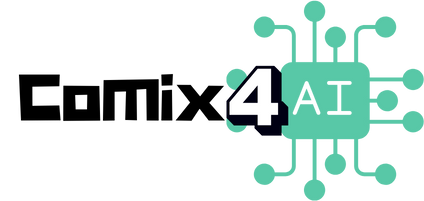Blog
The Emerging Need for an AI-Literate Society
A Path to Sustainable Development
In an increasingly digital world, the importance of fostering an AI-literate society is paramount. Artificial Intelligence (AI) is reshaping the global landscape, influencing sectors from healthcare and education to governance and business. Recognising the transformative power of AI, Europe and international organisations, including the United Nations, have highlighted AI literacy as critical to achieving broader initiatives and sustainable development goals. From advancing education to ensuring equitable technological growth, AI literacy is no longer optional – it is essential.
A Foundation for Global Goals
AI literacy, which entails a fundamental understanding of what AI is, how it operates, and its strengths and weaknesses, is crucial for navigating the complexities of the digital era. Initiatives such as the European Education Initiative and the UN’s Sustainable Development Goals (SDGs) underscore the necessity of AI awareness in driving global progress.
AI impacts virtually every aspect of our lives, and its application must align with ethical principles to promote fairness, prevent harm, and respect human autonomy, as emphasised by the European Union’s High-Level Expert Group on AI (AI HLEG, 2019). Ensuring AI is explicable and just requires a society that is not only AI-aware but also capable of critically assessing and applying AI technologies.
The Catalyst for AI literacy
Education plays a pivotal role in bridging the AI knowledge gap and balancing technological and human development. However, several challenges must be addressed to build an AI-literate society:
- Shortage of STEM Graduates: Data from Eurostat (2022) shows a concerning shortage of graduates in STEM fields, underscoring the need to foster interest in these areas from an early age.
- Lack of Digital Skills: The European Commission (2020) highlights that many young people and teachers lack basic digital skills, making it difficult to cultivate AI literacy effectively.
- Mismatch in AI Talent Supply and Demand: Research by Duch-Brown et al. (2022) reveals a significant gap between the supply of AI professionals and the demands of the labour market.
These challenges call for targeted interventions, starting at the school level, to prepare students for an AI-driven world. Teachers, often overburdened with responsibilities, require tools and strategies that integrate seamlessly into existing curricula without adding undue strain.
The Role of Problem-Based Learning
To address these challenges, adopting innovative pedagogical approaches is vital. Problem-based learning, rooted in active engagement, has proven effective in promoting student interest and motivation in STEM subjects (Martins & Gresse Von Wangenheim, 2022). The Comix4AI project exemplifies this approach by embedding digital comics into school subjects such as Computer Science, Engineering, Physics, and Chemistry. By leveraging storytelling and problem-solving design, this initiative aims to:
- Foster computational and critical thinking skills.
- Motivate students to explore STEM fields.
- Make AI concepts accessible and engaging.
Through such initiatives, education can cultivate a new generation of AI-literate individuals equipped to navigate the challenges and opportunities of an AI-powered future.
The Path Forward
Building an AI-literate society is not merely about understanding technology but about shaping a future where AI is used ethically, sustainably, and equitably. Governments, educators, and organisations must collaborate to integrate AI literacy into educational frameworks, ensuring no one is left behind in the digital transformation.
By prioritising AI literacy, we can unlock the potential of AI to contribute meaningfully to societal progress, bridging the gap between innovation and inclusivity. As we move forward, initiatives such as the European Education Initiative and projects like Comix4AI serve as vital steps in creating a world where AI empowers rather than marginalises, fostering sustainable development for all.
